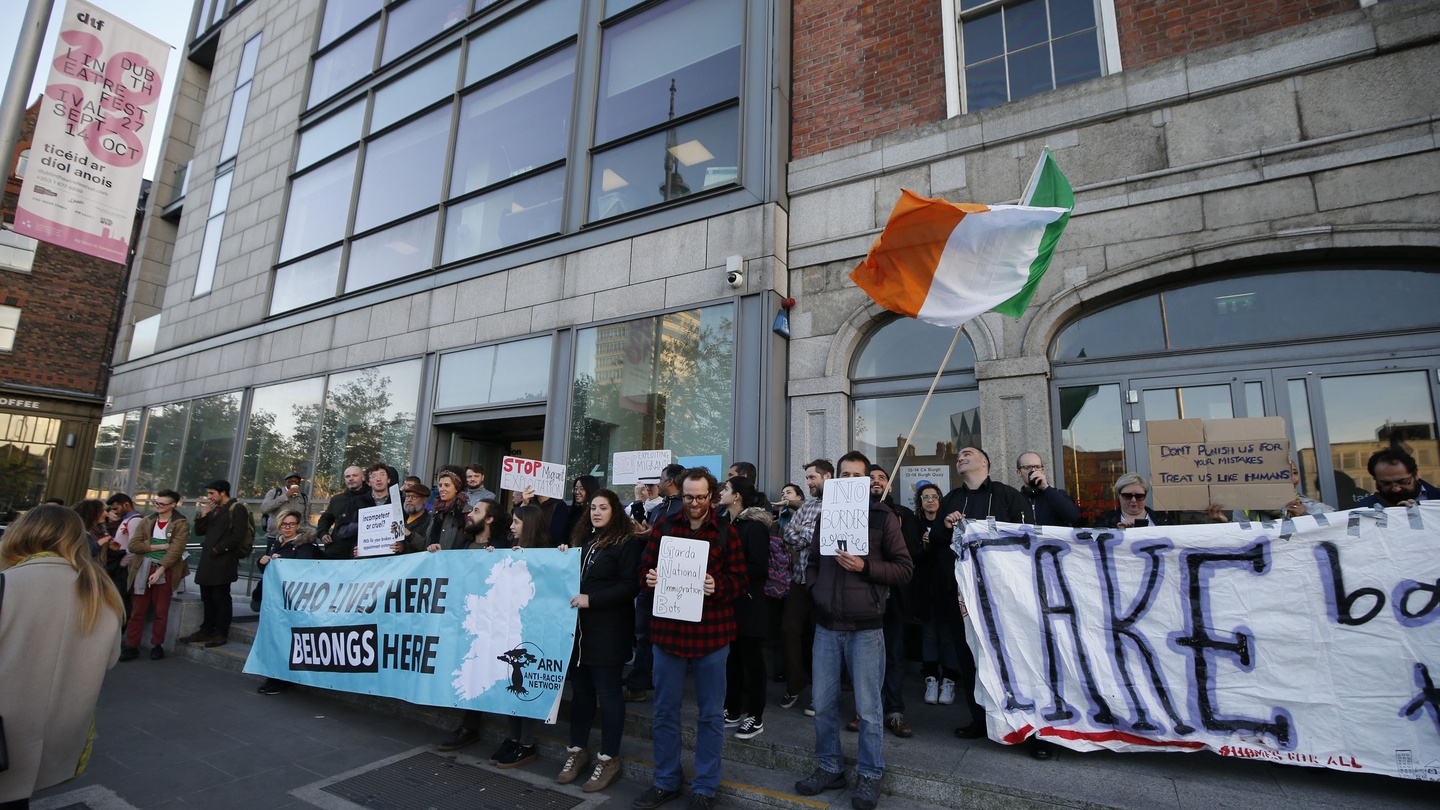
By Ger Molloy – The Irish Channel
Ireland, once celebrated for its open-door policy and historical understanding of emigration, is increasingly finding itself at a crossroads concerning its immigration strategy. While distinct in its social and political landscape from its Nordic counterparts, the pressures that compelled Sweden and Denmark to significantly tighten their inbound migrant flows are gradually accumulating on Irish shores. It is becoming increasingly probable that Ireland will, out of necessity, embark on a similar path of restrictive immigration policies.
One of the primary drivers for this potential shift is the strain on public services and infrastructure. Both Sweden and Denmark, renowned for their robust welfare states, faced immense pressure on housing, healthcare, education, and social services due to large and rapid increases in migrant populations. Ireland, with its persistent housing crisis, struggling healthcare system, and creaking infrastructure, is arguably even more vulnerable to such strains. The narrative of an overstretched system, barely coping with its existing population, is gaining traction in Irish public discourse, making the argument for managed and reduced migrant intake more compelling.
Furthermore, integration challenges and socioeconomic concerns loom large. Sweden’s dramatic policy shift was significantly influenced by rising social exclusion, unemployment among non-EU born individuals, and heightened levels of gang violence, often linked to failed integration in specific areas. While Ireland’s experience differs, nascent signs of integration difficulties in certain communities, coupled with debates around cultural assimilation and social cohesion, are emerging. As the diversity of Ireland’s population grows, so too will the focus on successful integration, and the perceived failures in this regard could fuel calls for stricter controls, much as they did in the Nordic countries.
The political landscape is another crucial factor. In Denmark, the rise of anti-immigration parties and a broad cross-party consensus on restrictive policies fundamentally altered the immigration debate. Sweden’s recent “paradigm shift” was solidified by a new government supported by a far-right party, explicitly adopting a more Danish-inspired approach. While Ireland has historically lacked a significant far-right political presence, public sentiment can be volatile. As concerns about housing, services, and social cohesion intensify, the political discourse inevitably hardens. We are already witnessing more vocal public protests and a shift in rhetoric from some politicians, indicating a potential opening for more restrictive viewpoints to gain prominence, pressuring mainstream parties to respond.
Finally, the simple concept of deterrence and sustainability played a key role in the Nordic shifts. Denmark explicitly aimed to make itself less attractive to asylum seekers, while Sweden sought “breathing space” after its 2015 influx. Ireland, as one of the few English-speaking EU nations, and with a reputation for welcoming migrants, could, in the future, face disproportionate pressure if other European nations continue to tighten their borders. The desire to maintain control over national borders and reduce overall numbers, particularly in the context of global migration trends, will become an increasingly powerful argument for sustainability.
While Ireland’s unique history and cultural identity may foster a prolonged resistance to such a shift, the economic realities, social pressures, and evolving political climate strongly suggest that the path trodden by Sweden and Denmark – towards significantly tightening inbound migrant flows – will eventually become an unavoidable trajectory for the Emerald Isle. The question is not if, but when, Ireland will make this inevitable policy adjustment.
